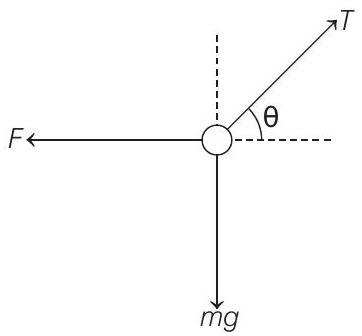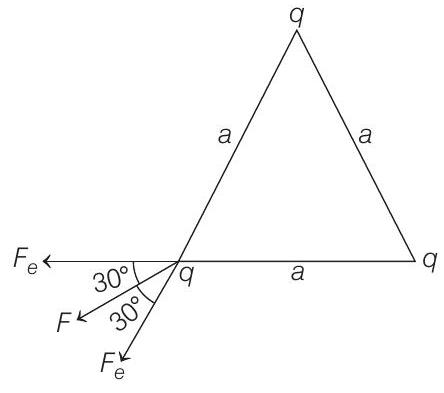Electrostatics 1 Question 22
23. Three particles, each of mass
(Take
(1988, 5M)
Show Answer
Answer:
Correct Answer: 23.
Solution:



Now, the particle is in equilibrium under three concurrent forces,
or
or
Solving this equation, we get






